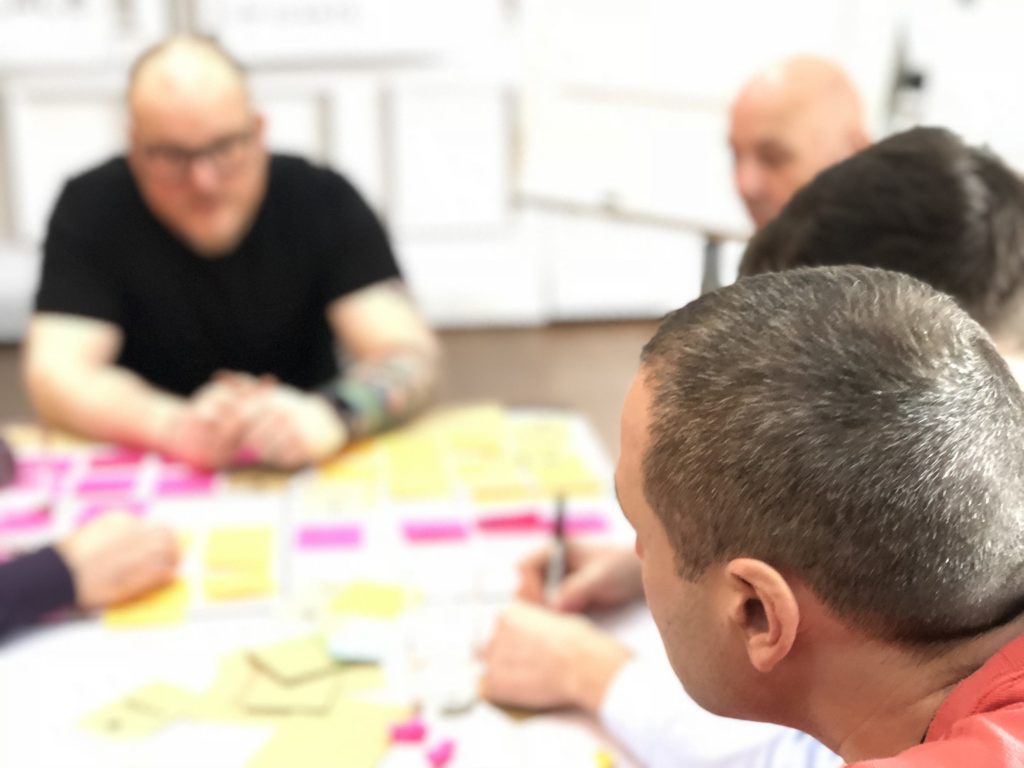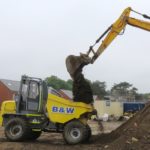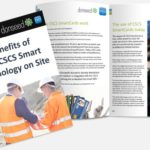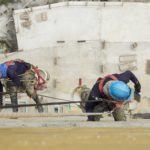Sector - Education & Training
Play the game or save lives?

Behavioural science is the scientific study of human behaviour and has been used for several decades now to improve performance. The momentum is gathering in the UK as increasing numbers of construction companies are awakening to the huge benefits this scientifically proven discipline can offer their business.
UKCO speak to Bob Cummins, one of the UK’s leading practitioners in behavioural science within health and safety, an author and founder and director of Sodak Limited, based in Edinburgh.

Bob Cummins
Pick your side, are you playing along or are you helping design a better future?
Do you believe that the worker gets injured because they are stupid or are they just trying to do their job and get the task completed for you?
Do you think that giving the worker a patronising talk on how injuries affect their life will drive safer behaviours or do you understand that they didn’t come to work to get injured in the first place?
Do you believe that everything is ok because that box is ticked or are you going to get out there and help the ‘at-risk’ worker do their job without losing a limb or their life?
What kind of safety leader are you? Pick a side.
The majority of the UK’s major construction companies’ health and safety management is sliding down a dangerous path. There are things that we do as an industry that we will look back on in years to come with disbelief. Our children will look at us with disappointment as we recount how we used to try and drive health and safety compliance with threat and coercion instead of compassion and genuine support.
As our species matures, we become less tolerant of practices that cause human suffering. Child labour, slavery and marital rape were all legal in the not so distant past. Health and safety at work has improved because of our recognition that people shouldn’t come to work and be made less healthy or suffer injuries, but we still have a long way to go.
I’m sure you would agree that injuries causing suffering should be prevented in the workplace but most of us lack the ability to delay gratification and ensure workplaces are as injury free as they could be. We have the right intentions but when push comes to shove we will put ourselves and others in a position of risk to get the job done quickly.
We are not great at doing things in the present to benefit our future, what behavioural economists call delayed discounting. This is why there is a need for legislation and policy. Good policy is designed to nudge us to do things in the present that may be slightly more onerous but will benefit us in the future. Pensions are a good example of an enforced rule that takes something away now to allow us to live a better life in the future.
Health and safety is the same. To do the right thing, to plan the job, to carry it out safely, to provide the right equipment, to get the right people, at the right time all take effort in the present for a benefit in the future. The problem is, we don’t live in the future, we live in the present. So, although we understand that saving is good and wearing a dust mask when required is beneficial, we have to give up something in the now for an imagined future that is not entirely certain.
What’s more, we learn that we can get away with ‘risky’ behaviours and achieve what we want in the moment with very little perceptible detriment to our future. This is a future that we aren’t yet experiencing versus a present which we most definitely are. This is why some people still smoke, drink or eat too much despite the obvious health risks. It’s why work causes us to be ill and why we place ourselves in dangerous situations for short-term gain. We are continually trying to achieve things in the moment supported by a society and culture that rewards instant gratification.
The way we manage a lot of health and safety in the workplace ignores this knowledge of basic human functioning. Legislation exists because governments understand that individuals won’t always do the right thing just because they’re asked to. We need to have rules and policies, positive and negative reinforcement. The government doesn’t get it right all the time of course and has recently begun to enlist the help of behavioural experts to help improve policy decisions but they do understand that changing behaviours takes a multi-faceted approach of expectation setting, removal of obstacles, measurement, motivation and feedback.
It takes effort to do the right thing as an individual. Left to my own devices, I am likely to opt for instant gratification over delayed gratification but, as part of a collective, my ‘now’ efforts can be supported by others. I get reinforcement in the present for behaviours that will bring future benefits.
We can recognise, acknowledge and reward ‘now’ effort in others to make the delay of gratification more likely to happen. In our affluent lives, filled with things we don’t need we’re still perfectly programmed for surviving in a hunting and gathering world that no longer exists.
We can help mitigate our outdated programming by creating cultures and social norms that support purposeful behaviours with long-term benefits.
The majority of current health and safety management systems are built around instant gratification. Briefing a worker on what to do and getting a signature on a piece of paper to prove a briefing happened is instant gratification. It is also irresponsible. It doesn’t make anyone more competent or safer but the manager now has a checkbox ticked and a signature that proves any accident wasn’t their fault. This is not how we should do safety.
Or, think of the workers who are told they have to wear safety glasses constantly when working on site, and are then issued with one pair of poor quality, cheap, uncomfortable glasses. Instant gratification from management’s point of view but completely irresponsible.
Many of the current behavioural safety programmes are also built around instant gratification for management and are near to useless for the worker. A four-hour briefing depicting the horrendous injuries that could befall you coupled with the obvious statement that you want to go home safe every day is not going to make you behave more safely when you are at risk. That’s not how humans work. If it was, scary pictures on cigarette packets would have been all that was needed to stop people smoking and prevent large numbers dying.
A myriad of current safety practices designed to make management feel good about the action they have taken leave workers bewildered and drive an even bigger wedge into the divide. Safety stand downs, yellow and red card systems, near miss reporting, tool box talks, safety posters, reverse parking, safe to start checklists – I could go on. None of these things actually save lives.
It’s time to apologise for all the nonsense created and continually supported by playing along. It’s time to use the scientific research that is readily available and to design systems and processes that help to drive the safer behaviours we want.
This will take more effort in the short term, but it is the only way we can improve. Collectively, we are supporting the broken system, collectively we can create and support a better future for everyone at all levels within our construction industry.
Are you playing along or are you helping design a better future?
Pick a side.
If you would like to read more articles like this then please click here.
Related Articles
More Education & Training News
- Government finalises RAAC removal programme
18 Nov 25
Definitive timeline for the complete removal of Reinforced Autoclaved Aerated Concrete (RAAC) from all affected
- Construction mental health consultation
29 Oct 25
The Construction Leadership Council (CLC) has launched a mental health in construction consultation.
- Flagship Ulster University capital build project procurement opportunity now live
9 Oct 25
Submit a tender now.






